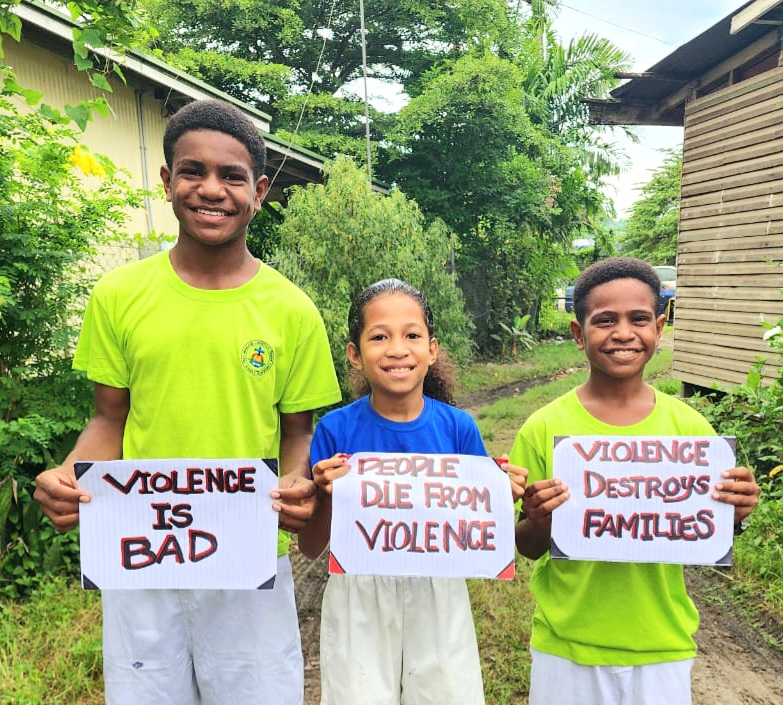Gender Based Violence (GBV), especially intimate partner violence, is a grave concern in Papua New Guinea, where the rate of violence against women is around 80%. One in two women in the country are victims of intimate partner violence.
One long-term measure to address intimate partner violence involves educating children and young people about the short- and long-term impacts on individuals, families, communities, and PNG more broadly. As young people’s awareness grows, along with their understanding of related laws and available support services, they will become empowered to seek assistance if they themselves are victims of domestic violence or to support friends, families, and others. Importantly, individuals contemplating perpetrating violence might also weigh the potential consequences of their actions, further contributing to the reduction of intimate partner violence in PNG.
A 2023 survey of 250 young people between the ages of 13 and 25 provided insights into their perceptions of what intimate partner violence is, and how it can be addressed at the community level. Participants were asked to say whether or not they were aware of the domestic violence laws in the country, such as the Family Protection Act 2013 (Figure 1). The data indicate a positive result.

For PNG to achieve a decline in domestic violence incidents in the future, it is imperative that youth are educated about this issue and other societal challenges. Youth hold the key to shaping the nation’s future. They have the potential to become either agents of change or harmful forces in our society.
Awareness and understanding of the laws related to domestic will influence young people’s thoughts, actions, and interactions with others, ultimately leading to behavioural and cultural shifts. Given the significant role they play in societies, they can also educate their families and communities about these laws, further amplifying the message of change. In the event that they themselves become victims of domestic violence, they will be empowered to seek justice.
As illustrated in Figure 2, many youths who had knowledge of these laws shared this information with others. Some used social media platforms while others shared the information informally by telling stories to their families, friends, and colleagues or through more formal conversations — during class, work presentations, meetings, and trainings.

Data also reveal that 78% (Figure 3) of youths surveyed knew that the Family and Sexual Violence Unit represented in police stations in Port Moresby is the first place to seek assistance in relation to domestic violence incidents. After taking the survey, the 20.8% who didn’t know are now aware that this unit exists. One participant stated:
All my life I grew up in Port Moresby, I had no idea that there was this specific unit that addresses domestic violence issues in the city. After taking this survey, now I know, and will spread the information to my classmates.

There is a misconception across communities in PNG that the Family and Sexual Violence Unit is only for female victims of domestic violence. However, the majority of the young male and female survey participants understand that it assists both men and women who are victims of domestic violence and other forms of GBV.
Ultimately, it is important that discussions about domestic violence laws and the support services available to victims are held in schools, given the amount of time young people spend there. Schools throughout PNG must take the initiative and collaborate with various organisations and groups to conduct awareness sessions for students and staff. This is one way in which communities can work together to address this issue.
Adopting such an approach would help to foster a culture of gender equality, respect, and non-violence among students, teachers, and other staff, contributing to the social transformation needed to combat domestic violence and other forms of GBV in Port Moresby and PNG more broadly.
Disclosure
This research was undertaken with the support of the ANU-UPNG Partnership, an initiative of the PNG-Australia Partnership, funded by the Department of Foreign Affairs and Trade. The views are those of the author only.



Thank you for another informative piece Minetta.
You’re welcome Dr. Hukula
Thank you for reading this blog.